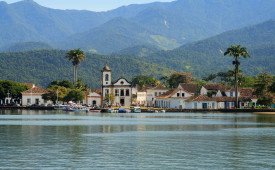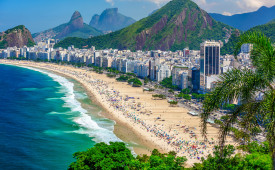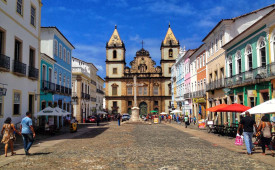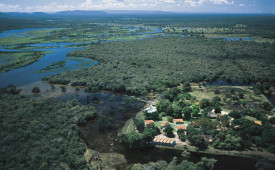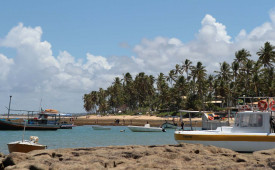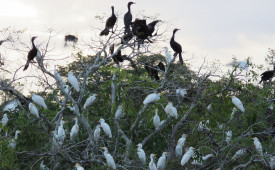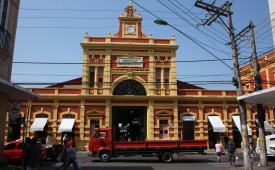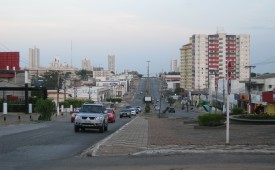-
Latin America
Latin America
- Countries (hidden space)
- Galapagos & Ecuador
- Guatemala
- Mexico
- Panama
- Peru
- Popular Attractions
- Machu Picchu
- Inca Trail
- Easter Island
- Galapagos Islands
- Patagonia
- Rio de Janeiro
- Iguazu Falls
-
Africa
Africa
- Spacer Africa
- South Africa
- Zimbabwe
- Popular Attractions
- Cape Town
- Okavango Delta
- Sossusvlei Dunes
- Victoria Falls
- The Kruger
- The Garden Route
- Masai Mara
-
Asia
Asia
- Spacer Asia
- Laos
- Sri Lanka
- Uzbekistan
- Vietnam
- Popular Attractions
- Taj Mahal
- Lion Rock (Sigiriya)
- Angkor Wat
- Ha Long Bay
- Kyoto
- Europe & Middle East
-
Destinations
- Latin America
- Argentina
- Bolivia
- Brazil
- Chile
- Colombia
- Costa Rica
- Galapagos & Ecuador
- Guatemala
- Mexico
- Panama
- Peru
- Asia
- Borneo (Malaysia)
- Cambodia
- India
- Japan
- Laos
- Sri Lanka
- Uzbekistan
- Vietnam
- Middle East
- Jordan
- Southern & East Africa
- Botswana
- Kenya
- Namibia
- South Africa
- Zimbabwe
- Europe
- Slovenia
- All Holiday Destinations
- Contact Us
-
About
About
Llama Travel provides high quality holidays at the lowest possible prices.
99% recommend us Lower prices - guaranteed Financially protected by ATOL
Travelling to Brazil
Travelling in Brazil
-
What to pack - Brazil
Light-weight, warm weather clothing is suitable for travelling in Brazil. Some areas, especially the Pantanal and Amazon regions, have very high humidity. On the Atlantic coast, during the winter months from June to August, night-time temperatures can be cooler and long-sleeved clothing is recommended. Long-sleeved, breathable clothing and closed shoes are necessary for visiting the Amazon and the Pantanal. Sun hats, sunglasses and sun protection cream are also recommended.
Rain showers are possible throughout the year in all destinations, so waterproofs are recommended.
Electricity in Brazil is 110V. Plugs are of the two round pin type. Some sockets also accept two flat pin plugs. We recommend taking a universal adaptor with relatively long pins, as some sockets are inset into the wall.
It is a legal requirement to carry identity documentation when in Brazil. Therefore, please carry a photocopy of your passport with you at all times.
Please bring any medication you may require from the UK.
-
Budgeting for your stay
All hotels include breakfast, and other meals are included on some tours and excursions. However, generally, you will need to arrange your own lunches and dinners. We recommend budgeting approximately US$25 – 30 for a meal, although many restaurants have excellent value set lunches for less than this. Hotel restaurants, especially in superior hotels, can be more expensive. Additionally, there are many upmarket restaurants, particularly in Rio, where you should expect to pay up to US$50 per person, or possibly more.
Bar prices are similar to the UK and a small bottle of beer usually costs around US$2-3 in a hotel bar. Wine, particularly imported wine, can be quite expensive.
Rio is generally expensive for most services, often higher than in the UK, although prices outside of Rio and other large cities are usually more reasonable/
-
Tipping
If you receive good service, you may want to leave a tip. This is completely at your discretion. For general excursions, if you want to tip guides, US$2 – 3 per person per day is usual if you are in a group. Approximately US$1 is usual for drivers or transfer staff. 10% is usual in restaurants. Please give any tips directly to the person you would like to tip to ensure that they get it.
-
Money
The currency in Brazil is the Real. Items are priced in local currency. Some hotels will accept payments in US Dollars or Euros. Travellers should take local currency, US dollars or Euros and not UK sterling, which is not widely accepted in any form. Brazilian Reals are usually stocked in UK currency exchanges.
Credit and debit cards (Visa and MasterCard) can be used in many shops and restaurants, and can also be used to withdraw money from cash machines. In cities, ATMs are often inside banks and cannot be accessed at night, so if you require cash, it is best to get this during the day. Not all cash machines work with international cards, so look for the Cirrus or Plus (Visa) symbols. Banco do Brasil, Bradesco and HSBC banks should accept international cards; however sometimes banks will only have one cash machine compatible with international cards, and will usually only work with Cirrus or Plus cards, not both. The Red Banco 24 Horas machines usually accept most cards. Santander banks are widespread but do not usually accept international cards. All airports, visited on your Llama Travel tour, have at least one cash machine compatible with international cards.
It is always recommended to inform your bank that you are travelling abroad and to which countries. This will allow them to authorise money withdrawals on your account when you are away. Some banks say that this is not necessary, however we would still recommend contact with your bank as in some cases people have had difficulty in withdrawing currency.
Using a prepaid travel card (which are loaded online and can be used like a credit or debit card when abroad) are often the best way to avoid the fees charged for using your UK credit/debit cards abroad. If taking travellers cheques, a high commission may be charged. Many hotels do not change travellers cheques so you may need to change them in a bank or exchange shop; therefore, please bear in mind opening hours.Please note that it can be difficult to use US dollar notes which have even the smallest tear. When changing US dollars into local Reals, always use a reputable place to change: banks, hotels or exchange shops. Do not change money on the street if you can avoid it.
-
Food
Rio has restaurants with cuisine from all over the world. Typical of the city are the churrascarias, or steakhouses, where, for a fixed price, waiters offer various different cuts of meat to add to your plate. There are many per kilo restaurants, where you pay according to the weight of your plate.
The restaurants in Foz do Iguaçu near the Iguaçu Falls offer typical Brazilian dishes, and due to its cultural diversity, European and Asian food is also found. To avoid taking a taxi to eat out in the evenings, you may find it more convenient to eat in your hotel. Each of our Iguaçu hotels has at least one good restaurant and bar. In the Brazilian national park, there are snack shops, a cafeteria at the end of the walking trail, and a restaurant which looks out directly towards the falls. The Argentinian national park has a restaurant and several smaller cafes selling snacks.
Salvador has a distinct cuisine which is a fusion of indigenous, Portuguese and African influences. Common ingredients are dendê (palm oil), fresh coriander, seafood such as shrimps, tomatoes and coconut milk. Must-try dishes include the street food favourite acarajé, a dumpling made from beans and deep-fried in palm oil, stuffed with a paste of shrimps and cashew nuts. Another speciality of the area is moqueca, a tasty slow-cooked seafood and fish stew with coconut milk, coriander, onions and garlic. For dessert, try cocadas, a sweet with fresh grated coconut, which is found in various forms around Latin America. Fresh juices and ice creams made from the wide range of fruits found in Brazil are also delicious. Coconut water is a very refreshing drink popular in the city.
The Praia das Ondas hotel in Itacimirim has an attractive restaurant and bar area, serving main meals and snacks, including local and international options. There are many restaurants on the main streets of Praia do Forte, in addition to ice cream and juice shops which use a wide range of local fresh fruits. Restaurants mainly serve seafood and other Bahian dishes, and some also offer pasta dishes and salads. Prices are often for two people. This is not always specified on the menu so ask the waiter for clarification if prices seem high.

